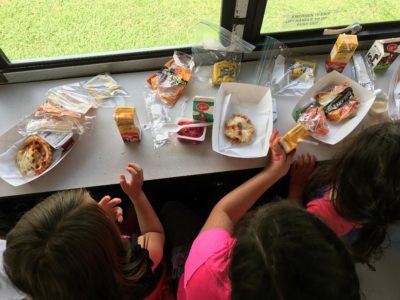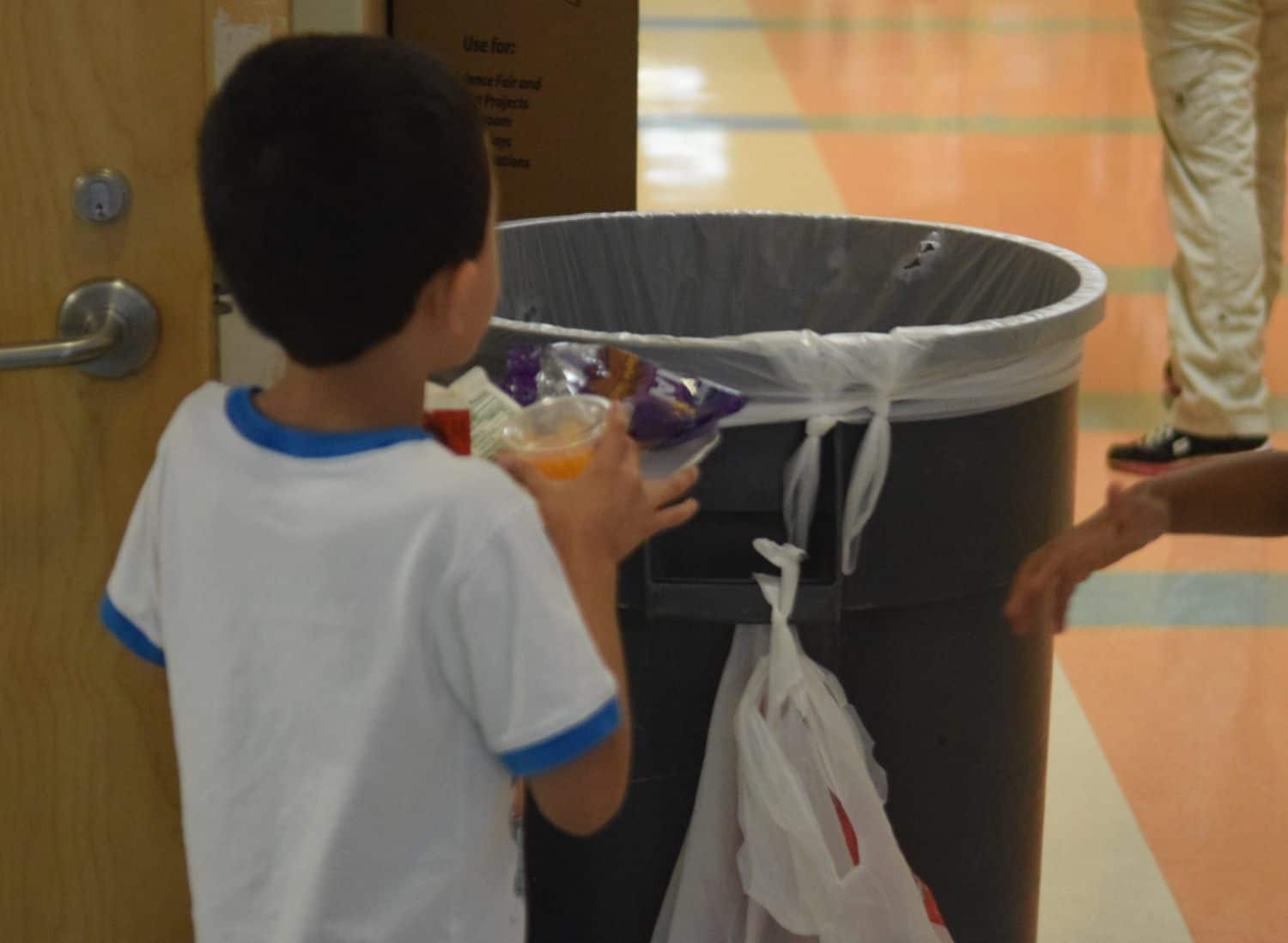During a recent speaking engagement, I asked the assembled students if they enjoyed the food in their schools growing up.
A single hand went up.
All too often the staff of EdNC watch students tossing nutritious food in the trash as we visit school cafeterias across the state.
We have heard the complaints of school employees who observe similar behaviors daily.
These experiences underscore the complexity of public policy. A common refrain from folks who find out that part of my work is around childhood nutrition and school food is, “We need to change the food that we serve our students.”
That is one reason that we are hosting the Carolina Food Summit in Chapel Hill in a few weeks. For one, we want to ask difficult questions.
Why is it so hard to serve nutritious food students will want to consume?
Few people understand the formulas our nutrition staffs are required to follow from the amount of whole grain, to the makeup of vegetables and fruit, to the amount of time they are allotted to prepare, or the small budget that they live within on a daily basis. The formulas are designed with policy experts, nutritionists, elected officials, and special interests all weighing in.
Even fewer of us are aware of how school food programs are funded.
Last year we held a Gathering for Good to educate attendees on the complexities of school food. It was the funding that generated the most surprised reactions in the room.
Durham Public Schools Childhood Nutrition Director Jim Keaten told the audience that he managed a $16 million dollar nutrition budget. Yet as of that gathering in July of 2016 Keaten told us, “Child nutrition does not receive one penny from Durham Public Schools, from the city, from the county. We receive $24,000 from the state for our breakfast program. That’s it.”
Yet where does the money come from? For one, the children and their families. For another, federal reimbursements.
Furthermore, Keaten’s program has to actually pay the district for items that many people presume are part of the package. Keaten shared that he had to pay in excess of $800,000 for rent, gas, and utilities in the prior year.
But EdNC’s interest in food started long before the Gathering for Good. A deep dive on access to healthy food with the Z. Smith Reynolds Leadership Council led to a short documentary about the work of Reverend Joyner in Conetoe which led to this column, Healthy Ever After.
We have the luxury of allowing your interests to drive our work. Our job is to follow the momentum.
That — and the stories we hear from teachers about how hard it is to teach hungry children — pretty much explain how this education news outlet ended up hosting a food summit.
Plus we really don’t like the trend to oversimplify complex questions when reporting on public policy.
The upcoming Carolina Food Summit is the next step in our conversation about student access to healthy food. It’s an opportunity to delve more deeply into this issue, and the content that will emerge will provide a more nuanced analysis of the issue from a variety of perspectives. We won’t shy away from the hard questions, but we will highlight the everyday heroes in this space.
We will discuss districts like Rowan-Salisbury who have embraced innovative concepts like the Yum Yum Bus to take meals on the road to meet the challenge of feeding the hungry over the summer.
Last week, we met with No Kid Hungry North Carolina staff who told us of the K-12 Culinary Institute.
The Institute intends to help nutrition staff meet five core objectives as outlined by the Department of Public Instruction:
- Improve student health, well-being and academic success through nutritious, appealing meals at school
- Increase participation in high-quality, enticing school nutrition programs
- Expand capacity of local school nutrition programs to purchase, prepare, and serve fresh, locally grown produce
- Increase consumption of fruits, vegetables, and whole grain-rich foods
- Provide continuing education opportunities for school nutrition personnel
We know we have a long way to go. Despite the efforts of many, children are still going hungry, battling obesity, and developing poor nutritional habits with lifelong consequences.
The creation of public policy requires us to grapple with every side of every issue. We hope the summit will spark conversation, build on the momentum, chart a direction, and encourage others to act.
Recommended reading




